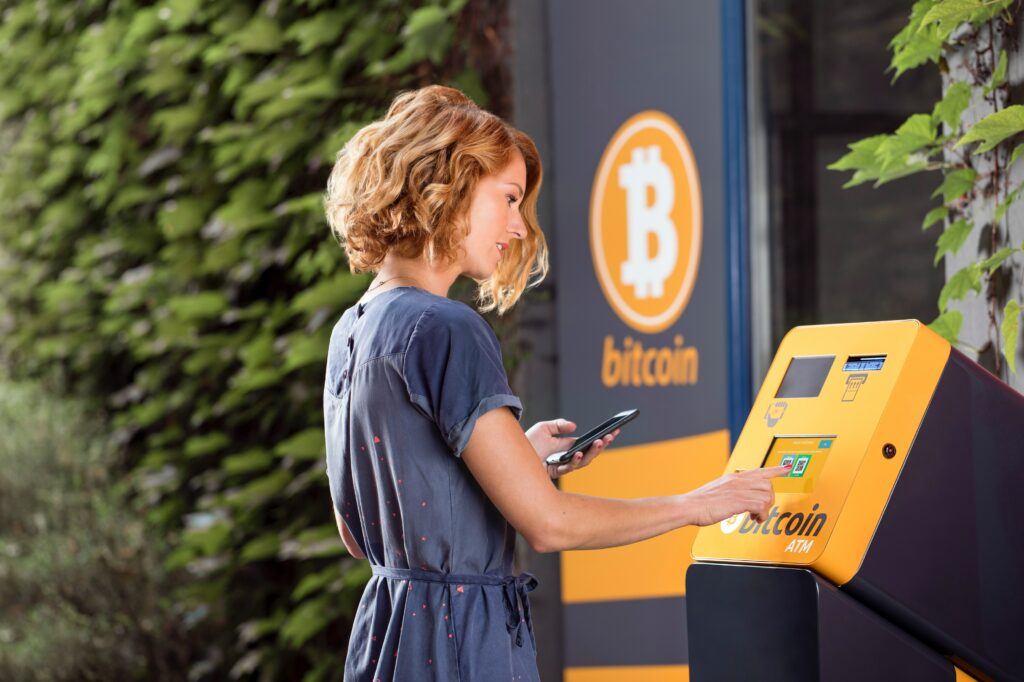How to buy cryptocurrency anonymously.

In a world where privacy is becoming increasingly rare, the concept of anonymous cryptocurrency purchases stands as a beacon for those seeking to protect their financial transactions. While buying cryptocurrencies anonymously can be a challenging endeavour, it is not an impossible task.
In this blog I will delve into the intricacies of achieving anonymity in cryptocurrency purchases, exploring various methods, platforms, and privacy-enhancing techniques that can empower individuals to navigate the shadows and safeguard their financial privacy.
The Art of Anonymous Cryptocurrency Purchases: Navigating the Shadows
Before embarking on the quest for anonymous cryptocurrency purchases, it is crucial to understand the challenges involved in seeking such anonymity. The rise of something unknown to many and called “Know Your Customer” (KYC) regulations implemented by most cryptocurrency exchanges has made it increasingly difficult to maintain privacy. KYC refers to the process that cryptocurrency exchanges use to verify and authenticate the identity of their customers. KYC is a crucial aspect of regulatory compliance and helps prevent illegal activities like money laundering, fraud, and terrorist financing. However, by exploring alternative methods and platforms, individuals can adopt strategies to overcome these challenges.
Peer-to-Peer (P2P) Platforms: A Veil of Anonymity
One of the most popular methods to buy cryptocurrency anonymously is through something called pier to pier (commonly known as P2P) platforms. Sounds a bit strange? Let me offer an example by way of explaining what that is.
Imagine you’re a kid and you have a toy that you want to trade with your friend, but you don’t want to involve anyone else. Peer-to-peer, or P2P, is like when you and your friend make a direct exchange without needing help from anyone else, like your parents or a teacher.
In the same way, in the world of computers and the internet, P2P means that people can trade or share things directly with each other without needing a middle person, like a company or a website, to help them. It’s like having a special secret club where you and your friends can trade things or share information directly between yourselves.
P2P platforms for buying cryptocurrencies work in a similar way. They connect people who want to buy and sell cryptocurrencies, just like you connect with your friend to trade toys. These platforms make it possible for people to trade directly without involving big companies or banks.
Aaaaa now I get it! So where can I do this?

There are a number of platforms like this that act as intermediaries connecting buyers and sellers, allowing individuals to transact without the involvement of traditional exchanges. LocalBitcoins, Bisq, and HodlHodl are examples of such platforms. As with most things in life, it’s important to take baby steps and get comfortable with something unknown and not to just dive straight in. I need to emphasize the importance of conducting due diligence and employing necessary precautions while engaging in P2P transactions.
Embracing Privacy-Focused Cryptocurrencies
There are certain cryptocurrencies that have been developed with your privacy as top priority. This type of cryptocurrency is called “Privacy-focused cryptocurrency”. But what exactly is it? Privacy-focused cryptocurrencies are a type of digital currency that prioritize user privacy and anonymity by implementing advanced cryptographic techniques. These cryptocurrencies aim to provide individuals with greater control over their financial transactions and protect their sensitive information from being publicly accessible on the blockchain. Here is a short list of the top 5 most popular Privacy-focused cryptocurrencies:
- Monero (XMR): Monero is a decentralized cryptocurrency that focuses on privacy and fungibility. It utilizes technologies such as ring signatures, stealth addresses, and confidential transactions to obfuscate transaction details, making it difficult to trace the sender, recipient, and transaction amount.
- Zcash (ZEC): Zcash is a cryptocurrency that offers both transparent and shielded transactions. Shielded transactions, known as “z-transactions,” use zero-knowledge proofs called zk-SNARKs to encrypt transaction data while still allowing for auditability and selective disclosure.
- Dash (DASH): Dash is a privacy-centric cryptocurrency that offers optional privacy features. It includes a feature called “PrivateSend,” which employs a mixing mechanism to obfuscate the origin and destination of transactions, providing increased privacy.
- Verge (XVG): Verge is a privacy-focused cryptocurrency that aims to provide secure and anonymous transactions. It utilizes technologies such as the Tor network and the I2P protocol to obfuscate IP addresses and enhance privacy.
- Grin (GRIN): Grin is a privacy-focused cryptocurrency that implements the Mimblewimble protocol. This protocol combines transactions in a way that eliminates unnecessary data, resulting in improved scalability and enhanced privacy.
These privacy-focused cryptocurrencies offer individuals the ability to conduct transactions with increased anonymity and protect their financial privacy. However, it’s important to note that no cryptocurrency can guarantee absolute privacy, and users must understand the underlying technologies, potential limitations, and ongoing development of these cryptocurrencies to make informed decisions regarding their privacy requirements
Decentralized Exchanges (DEXs): The Path to Untraceable Transactions

Decentralized exchanges (DEXs) operate on blockchains and allow users to trade cryptocurrencies directly from their wallets, eliminating the need for a centralized intermediary. Unlike centralized exchanges, which rely on a central authority to hold users’ funds and execute trades, DEXs operate on a decentralized network, typically leveraging blockchain technology.
Here are some key aspects and benefits of decentralized exchanges:
- Control and Security: DEXs allow users to retain control over their funds as they trade directly from their wallets, eliminating the need to deposit funds into a centralized exchange. This reduces the risk of potential hacks or security breaches associated with centralized exchanges, where users’ funds are held by a third party.
- Trustlessness and Transparency: DEXs operate on public blockchains, which ensures transparency and allows users to verify transactions independently. The absence of a central authority removes the need to trust a single entity, fostering a trustless environment where users have more control over their transactions.
- Privacy and Anonymity: DEXs often prioritize user privacy by not requiring extensive KYC processes. Users can trade cryptocurrencies without divulging their personal information, offering a higher degree of anonymity compared to centralized exchanges.
- Reduced Fees: DEXs typically have lower fees compared to centralized exchanges since they eliminate the costs associated with intermediaries. Users may only incur network transaction fees, which are often lower than the trading fees charged by centralized exchanges.
- Liquidity and Market Diversity: While liquidity can sometimes be a challenge for DEXs, they have made significant advancements in this area. Several DEXs employ liquidity pools, automated market makers, and other mechanisms to enhance liquidity and provide a broader range of tradable assets.
- Openness and Innovation: DEXs are often built on open-source protocols, allowing developers to contribute and build on top of existing infrastructure. This fosters innovation, enabling the creation of new decentralized financial (DeFi) applications and smart contract functionalities.
It’s important to note that while DEXs offer many advantages, they also have some considerations. These include potential challenges related to liquidity, user experience, and the need to manage private keys securely. It’s essential for users to research and select reputable DEX platforms, considering factors such as security, user reviews, and the community behind the project.
Overall, decentralized exchanges provide a decentralized, secure, and transparent way to trade cryptocurrencies, empowering users with greater control over their assets and fostering innovation in the cryptocurrency ecosystem.
Navigating Bitcoin ATMs: Anonymity in the Physical Realm

Bitcoin ATMs (BTMs) provide a physical gateway to the cryptocurrency world, enabling users to purchase cryptocurrencies using cash or debit cards. While anonymity may be more challenging to achieve with BTMs compared to other methods, they do come with certain advantages. Bitcoin ATMs, or Bitcoin vending machines, are physical machines that allow individuals to buy or sell Bitcoin and, in some cases, other cryptocurrencies. These machines provide a convenient way for users to exchange cash or fiat currency (which is your local currency) for cryptocurrencies and vice versa.
That’s all folks
Achieving anonymity in cryptocurrency purchases requires careful consideration, planning, and research. While complete anonymity may not be attainable in every scenario, individuals can employ various strategies to enhance their privacy and protect their financial transactions. By leveraging peer-to-peer platforms, exploring privacy-focused cryptocurrencies, utilizing decentralized exchanges, and considering Bitcoin ATMs, individuals can empower themselves to navigate the shadows of the crypto world. It is vital, however, to remain informed about the ever-evolving regulatory landscape and to strike a balance between privacy and compliance with local laws. With the right knowledge and precautions, individuals can embark on their journey towards anonymous cryptocurrency purchases while preserving their financial privacy in an increasingly interconnected world.

